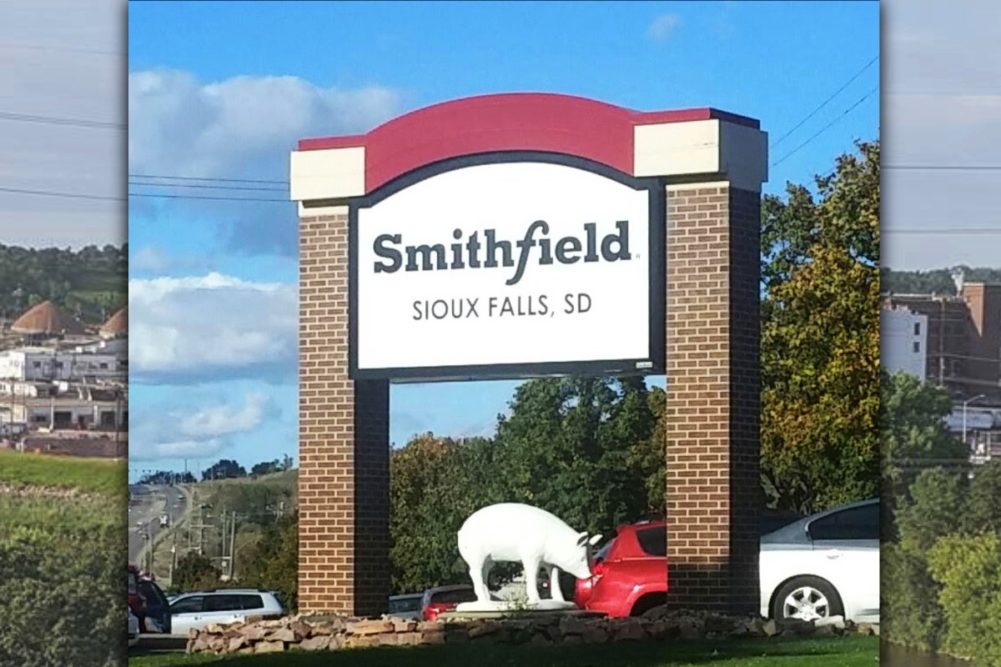SIOUX FALLS, SD. – Smithfield Foods Inc. recently filed a motion to intervene in an investigation by the US Occupational Safety and Health Administration (OSHA).
Smithfield filed its motion following a subpoena by OSHA to obtain South Dakota state officials test results, communication with Smithfield employees and/or photos of the plant. The company’s pork processing plant in Sioux Falls, SD, was hit by a major outbreak of COVID-19 in April.
“Specifically, the subpoena seeks information and documents that were provided by Smithfield to DOH (Department of Health) in the context of advancing public health and the health of its employees, and subject to an agreement that the information would be adequately protected,” Smithfield’s motion said. “Smithfield’s employees have legitimate privacy interests in this information, and Smithfield and DOH are legally obligated to protect it. Further, the subpoena violates Smithfield’s due process rights.”
In a statement to MEAT+POULTRY on July 7, Keira Lombardo, Smithfield Foods executive vice president of corporate affairs and compliance, said the company had been transparent with the investigation and provided OSHA with almost 10,000 documents and is producing any requested witnesses. The company also said that the information sought by OSHA is not relevant to the ongoing investigation.
Smithfield said that OSHA is now asking for additional documents from the South Dakota Department of Health (SDDOH).
“We objected to this subpoena because the documents sought by OSHA were produced to the SDDOH for the purpose of epidemiological studies and may have included sensitive employee health and proprietary business information,” Lombardo said. “OSHA can obtain such documents directly from the company and we have provided all such requested documents.”
Lombardo continued by saying when documents go directly from the company to OSHA, they are subject to OSHA’s procedural safeguards to keep the information confidential.
“When obtained by a third-party, we have no way to ensure that private employee medical information and confidential business information will be protected from disclosure to the public and/or made available to our competitors,” Lombardo said. “Our motion was simply asking for the opportunity to review these documents to flag such issues and, if our concerns were validated, require that production include confidentiality safeguards. Our employees in Sioux Falls have already experienced discrimination in the community amid the pandemic, and we take our responsibility to protect their private health information seriously.”
In the motion, Smithfield stated that the subpoena raised public policy implications relevant to the United States’ response to COVID-19. The company said if the subpoena is enforced without limitation it will “undoubtedly chill critical collaborations between essential employers and public health agencies going forward.”
Later, the pork processor requested a more limited remedy. Smithfield specified that it wanted to conduct a pre-production review of all DOH responses to the subpoena. With this agreement, Smithfield could redact confidential employee and business information along with documents that Smithfield might have a legal objection to during this investigation.
According to the motion, South Dakota DOH agreed to this pre-production review.



